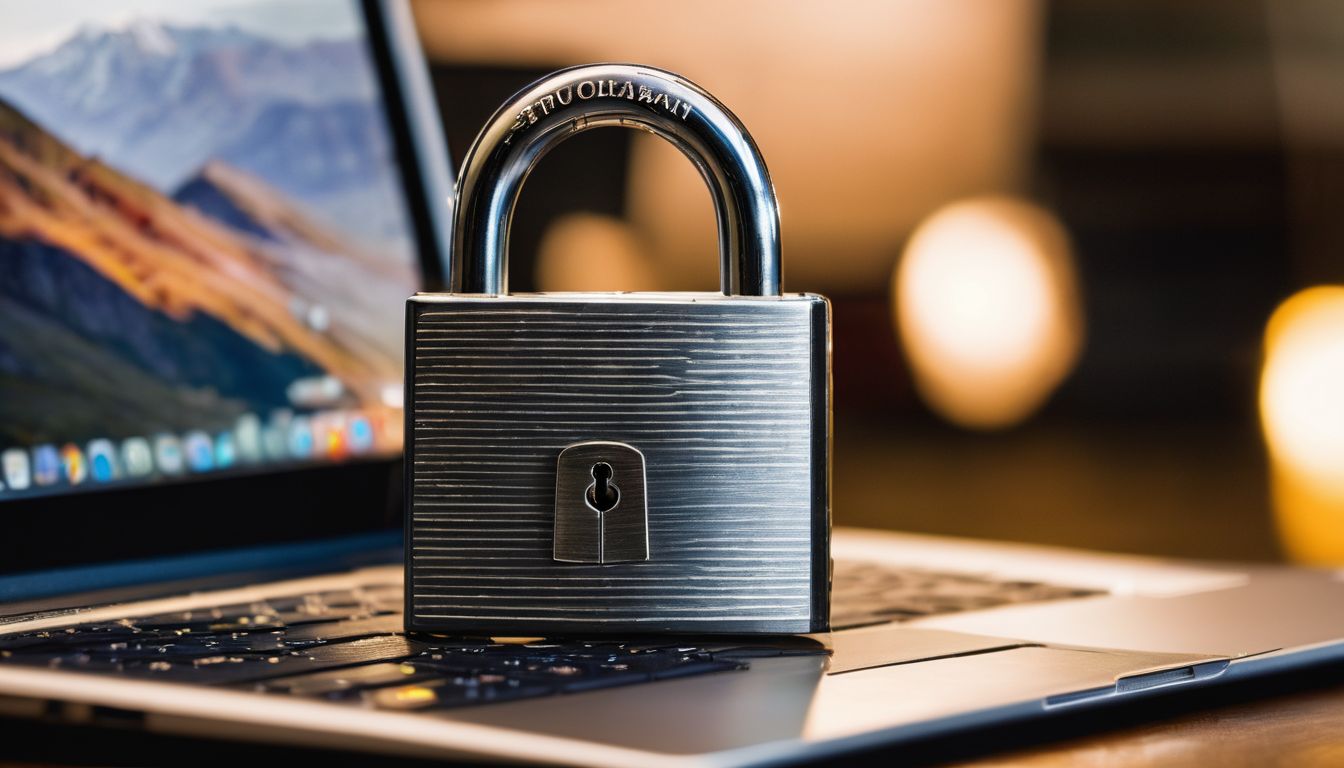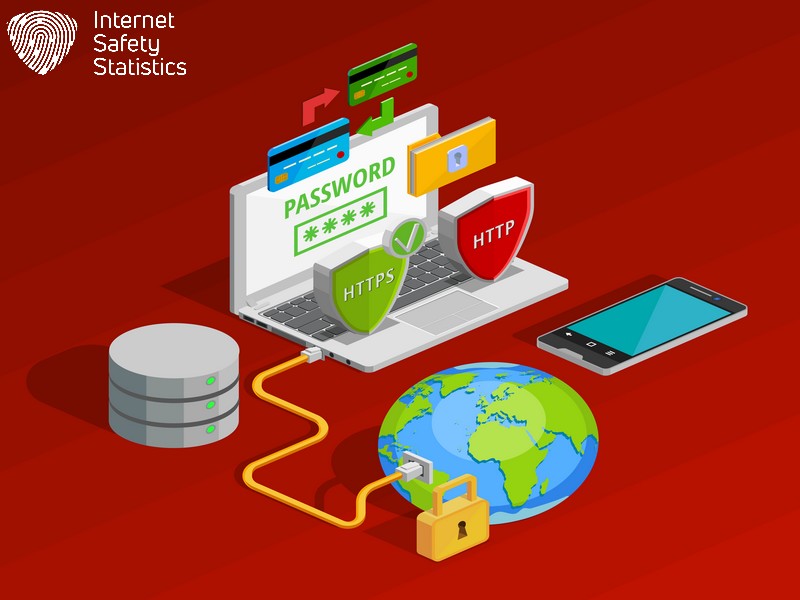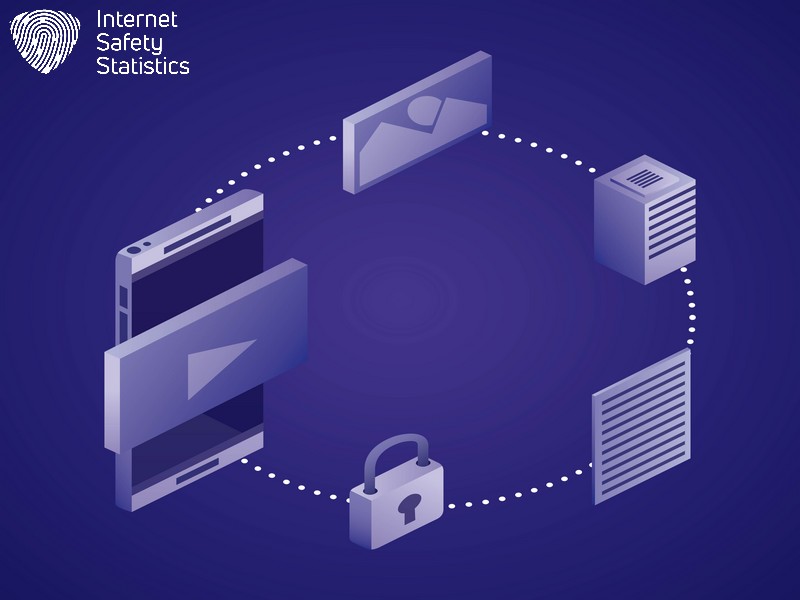
The digital world offers endless possibilities, but venturing online requires a strong foundation in cybersecurity. A careless click can compromise your personal information or leave your device vulnerable to malicious attacks. This guide equips you with the top internet safety rules. By following these essential strategies, you’ll build a robust shield against online threats and confidently navigate the web.
Keep reading for key strategies to safeguard your internet experience.
Understanding Cybersecurity
Cybersecurity involves defending computers, servers, mobile devices, electronic systems, networks and data from malicious attacks. It’s like creating a series of digital fences and alarm systems to protect your online property – including personal details and sensitive company information. With cyber threats growing more sophisticated each day, it’s crucial to have strong defences in place.
Think of cybersecurity as a set of strategies that safeguard your internet presence. Safe browsing keeps you away from harmful websites, while using complex passwords combined with two-factor authentication fortifies the locks on your virtual doors.
Regular software updates are also essential; they patch any security holes that hackers could exploit. As we aim for complete online safety, let’s explore the most critical rules everyone should follow to stay secure in the digital world.
The Top Internet Safety Rules for Everyone
Regarding internet safety, using strong passwords and two-factor authentication is crucial. Be cautious of suspicious links and free Wi-Fi/downloads, and always keep personal information safe and private. Finally, secure your devices and stay updated with the latest security measures – consider using a virtual private network (VPN) for added protection.
Use Strong Passwords and Two-Factor Authentication
Create unbreakable passcodes and enable two-factor authentication to fortify your online accounts. Use a combination of letters, numbers, and special characters for passwords that are at least 12 characters long. Incorporating phrases or acronyms can help construct memorable yet secure codes. Additionally, two-factor authentication should be utilised for extra protection against unauthorised access.
With these measures in place, you significantly enhance the security of your personal information and guard against potential cyber threats. Protecting your digital footprint is crucial in today’s interconnected world, where online privacy is increasingly at risk.
Be Cautious of Suspicious Links and Free Wi-Fi Downloads
Protect your devices by being cautious of suspicious links and not downloading files from unknown sources. Cybercriminals often use enticing links and free downloads to trick users into installing malware or divulging sensitive information.
Always verify the legitimacy of a website before clicking on any links, and avoid using public Wi-Fi for activities that involve sharing personal data. Take extra caution when downloading files, as they may contain harmful software that could compromise your device’s security.
Stay vigilant while browsing the internet and encourage safe practices among children, colleagues, and family members to prevent falling victim to cyber threats. Regularly update your devices’ security software to protect against evolving online risks.
Keep Personal Information Safe and Private
Protecting personal information is vital for online safety. Limit the sharing of personal details to maintain privacy. Use strong passwords and avoid sharing them with anyone, keeping your data secure and protected from cyber threats.
Always be cautious when asked to share personal information online. Utilise encryption tools whenever possible to safeguard sensitive data from potential breaches and unauthorised access. Regularly review the privacy settings on your accounts and ensure they are set to the highest level of security possible.
Secure Devices and Stay Updated
Regularly updating your devices and software is crucial to staying protected online. Installing the latest security patches allows you to safeguard against potential vulnerabilities that cybercriminals may exploit. Additionally, enabling automatic updates ensures that your devices are continuously fortified against emerging threats, helping to maintain a secure digital environment. Stay proactive in securing your devices by regularly checking for updates and taking immediate action to enhance your online safety.
To stay ahead of potential cybersecurity risks, make it a priority to update all applications and programs on your devices. Strengthening the security of your systems through regular updates will help defend against malicious attacks and keep sensitive information secure from unauthorised access.
Use a Virtual Private Network (VPN)
Protect your online activities by using a virtual private network (VPN). A VPN encrypts your internet connection, safeguarding your data from potential threats. By connecting to a secure server, you can browse anonymously and prevent unauthorised access to your personal information. Additionally, a VPN allows you to access geo-restricted content and enhances online privacy.
Browse the web securely with a VPN, which shields your sensitive information from hackers and cybercriminals. You can safely use public Wi-Fi networks with encrypted traffic without risking data exposure.
Backup Personal Data Regularly
Regularly backing up personal data is crucial for safeguarding important information from potential loss or damage. It ensures that your files, photos, documents, and other valuable data are protected in case of unexpected events like hardware failure, theft, or cyber-attacks.
Utilise external hard drives, cloud storage services, or automated backup software to securely store copies of your data in a different location from where the original is kept. By implementing this simple practice, you can maintain peace of mind, knowing that your cherished memories and vital information remain safe and accessible.
Protecting Children, Teens, and Seniors Online
Teach children about internet safety rules, monitor teens’ online activity, and educate seniors on spotting online scams. Click here to learn more about how to protect your loved ones from online threats.
Teach Children Internet Safety Rules
The internet is a vast and wonderful resource, but teaching children how to navigate it safely is important. Here are some steps you can follow:
- Be a Partner in Exploration: Instead of simply restricting internet use, explore the web together. This helps you understand what sites they frequent and the kind of content they’re exposed to.
- Personal Information is Private: Explain that personal information like home address, phone number, and school names should not be shared online with strangers.
- Screen Name Savvy: Discuss the importance of using a cool but safe screen name that doesn’t reveal their real identity. Keep passwords a secret, except for one you create together for a safe, shared account.
- Stranger Danger Applies Online: Like in the real world, online strangers should be treated cautiously. Teach them not to meet up with anyone they’ve only connected with online.
- Downloading Dilemmas: Discuss the dangers of downloading files or apps from unknown sources. Explain that these can contain viruses that can harm their computer.
- Think Before You Post: Help them understand that once something is posted online, it’s almost impossible to erase. Encourage them to be mindful about what they share, especially pictures or videos.
- Cyberbullying: Talk about cyberbullying and how to handle it. They should tell you or another trusted adult if they encounter mean or hurtful messages online.
- Privacy Settings Power: Many websites and apps have privacy settings. Help them adjust these settings to control who can see their information and activity.
- Open Communication is Key: Create a safe space for open communication. Let them know they can come to you with any questions or concerns about the internet.
Monitor Teens’ Online Activity
It’s equally important to monitor teens’ online activity as it is to teach children internet safety rules. Here are some effective ways to keep an eye on what teenagers are doing online:
- Set boundaries and establish clear guidelines for internet usage, including time limits and approved websites or apps.
- Use parental control software to monitor and restrict your teen’s access to inappropriate content or risky online activities.
- Keep an open line of communication with your teenager about their online experiences and encourage them to report any unusual or concerning behaviour they encounter.
- Familiarise yourself with your teenager’s social media platforms and apps to better understand their online interactions and potential risks.
- Regularly review your teen’s browsing history, app usage, and social media posts to ensure they engage in safe and responsible online behaviour.
Educate Seniors on Online Scams
Educating seniors on online scams is crucial to protect them from cyber threats. You can start by informing them about common online scams such as phishing emails, fake websites, and identity theft. Encourage them to be cautious while sharing personal information and to avoid clicking on suspicious links in emails or text messages. Advise them to verify the authenticity of websites before making any transactions or providing personal details. Additionally, they should be aware of social engineering tactics used by scammers to manipulate them into divulging sensitive information.
How to Avoid Identity Theft Online

Monitor your credit reports and statements regularly to catch any unusual activity. Shred personal documents containing sensitive information and stay cautious while travelling to prevent identity theft online.
Monitor Credit Reports and Statements
Regularly review your credit reports and statements to detect any unusual activity. Check for unauthorised transactions, unfamiliar accounts, or errors in your credit history. Look for signs of identity theft or fraudulent activities that could compromise your financial security. Utilise online platforms and services to stay informed about changes in your credit information. Stay updated on potential threats and take action promptly if you notice anything suspicious.
Monitor your credit reports and statements for fraudulent activity, errors, or unauthorised charges. Ensure the safety of your data by staying informed about any changes through regular checks on your credit information.
Shred Personal Documents
Shredding personal documents is crucial in preventing identity theft. Destroy old bills, bank statements, and any sensitive information documents before disposing of them. Identity thieves can use this information to steal your identity and commit fraud. Shredding ensures that no one can access your details from discarded paperwork.
After shredding personal documents, it’s important to dispose of the shredded pieces carefully to prevent anyone from reconstructing them. Use a cross-cut shredder for extra security, and consider recycling the shredded paper separately from other recyclables or using it as packaging material for fragile items.
Stay Cautious while Travelling
Regarding staying cautious while travelling, it’s essential to be mindful of your digital security. Avoid connecting to public Wi-Fi networks, as they can compromise your sensitive information. Use a virtual private network (VPN) to encrypt your online activity and protect yourself from potential cyber threats. Also, refrain from sharing personal details on social media platforms and be cautious about using unknown USB charging stations or devices in public places.
Cybercriminals often target travellers through scams and phishing attempts, so stay vigilant and take necessary precautions to safeguard your personal data while on the go.
In conclusion, it is crucial to prioritise internet safety by using strong passwords and enabling two-factor authentication. Always be cautious of suspicious links and avoid sharing personal information with strangers online. Keep your devices secure and updated to prevent cyber threats, and use a virtual private network (VPN) for additional protection. Regularly back up your data and stay vigilant against online scams to safeguard your digital presence.
FAQs

1. What are the basic Internet safety rules everyone should know?
The top internet safety rules include protecting your data online, following safe browsing habits, and being aware of internet security measures to prevent scams.
2. How can I protect my privacy on the internet?
You can protect your online privacy by using strong passwords, updating privacy settings on social media, and understanding digital protection techniques that keep your information secure.
3. Why is Internet safety important for children?
Internet safety for children is crucial because it teaches them digital citizenship and helps them learn web safety precautions to keep them safe from inappropriate content or cyberbullying.
4. What steps can be taken to avoid online scams?
To prevent online scams, always verify sources before sharing information, use cybersecurity tips like installing antivirus software, and watch out for too-good-to-be-true offers.
5. Can following digital safety tips help in protecting against hackers?
Yes, applying digital safety tips like regularly updating your software and avoiding clicking suspicious links are effective cybersecurity measures that safeguard against hacking attempts.
6. How does understanding Internet security guidelines benefit me?
Knowledge of internet security guidelines heightens your cybersecurity awareness, which assists you in identifying threats early on and allows you to engage in safer web browsing practices.
